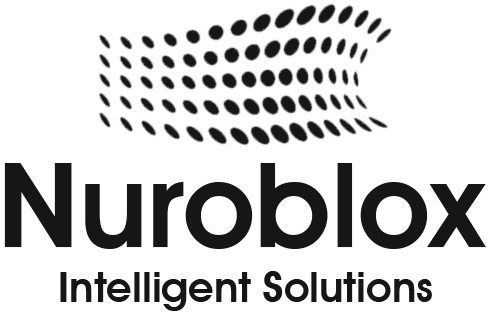Private AI for Enterprises- Secure, Scalable, and Compliant
As enterprises accelerate their adoption of AI, the conversation is shifting from experimentation to execution and from convenience to control. While cloud based AI tools have enabled fast innovation, they often come at the cost of data privacy, regulatory risk, and limited visibility into how models operate.
For industries dealing with sensitive data, such as finance, healthcare, legal, and government, relying on public AI infrastructure can pose unacceptable risks. This is where Private AI comes into play.
Private AI refers to AI models and workflows deployed within a company’s own secure environment whether on-premises, in a private cloud, or through hybrid infrastructure. It enables organizations to harness the full power of AI while maintaining control over their data, meeting compliance requirements, and safeguarding intellectual property.
In this blog, we’ll explain what Private AI is, how it helps modern businesses, where it works best, and how your company can build secure, scalable, and compliant AI systems.
What Is Private AI?

Private AI refers to artificial intelligence systems that are deployed, trained, and operated within a secure and controlled enterprise environment, rather than relying on public or third party cloud services. This approach allows organizations to maintain full ownership and control of their data, models, and infrastructure.
Unlike public AI models, which process data on external servers or shared platforms, Private AI is designed to meet the unique demands of data sensitive industries where compliance, security, and governance are non-negotiable.
Why Enterprises Need Private AI
As artificial intelligence becomes embedded in day to day enterprise operations, data privacy, governance, and control are no longer optional; they’re essential. While public AI services offer speed and accessibility, they often fall short in meeting the strict requirements of regulated industries and large scale enterprises.
Private AI bridges that gap, offering the power of intelligent automation and analytics without compromising data security, compliance, or enterprise control.
Key Reasons Enterprises Are Turning to Private AI–
- Protect Sensitive Data
Enterprises handle confidential financial records, customer data, health information, and intellectual property. Private AI ensures that this sensitive data never leaves your controlled environment. - Ensure Regulatory Compliance
With evolving regulations like GDPR, HIPAA, CCPA, and industry specific mandates, enterprises must demonstrate how data is used and protected. Private AI allows for complete auditability and governance over how models process data. - Gain Full Control Over Infrastructure and Workflows
Unlike public AI platforms, which operate as black boxes, Private AI gives organizations visibility into model behavior, versioning, access logs, and workflow logic, enabling greater trust and flexibility. - Enable Deep Customization
Private AI models can be trained on enterprise specific data and tailored to niche business requirements from legal document processing to risk modeling without exposing proprietary information to third party services. - Integrate Seamlessly with Internal Systems
Enterprises often rely on legacy tools, internal APIs, and strict access policies. Private AI is designed to operate within these constraints, supporting deep integration with ERPs, CRMs, and private cloud infrastructure. - Mitigate Vendor Lock-In
Relying on external AI services can limit scalability and adaptability. Private AI allows businesses to build reusable, portable models and workflows that they fully own.
Private AI empowers enterprises to adopt AI at scale securely, responsibly, and strategically. It provides a future-proof foundation for innovation while respecting the realities of data privacy, regulatory obligations, and operational complexity.
Getting Started with Private AI

Adopting Private AI is a strategic move that requires thoughtful planning, the right technology, and alignment across teams. Whether you’re in finance, healthcare, legal, or government, getting started with privacy first AI doesn’t have to be overwhelming. Below is a practical roadmap to begin your journey.
1. Identify Use Cases Where Privacy Matters Most
- Focus on workflows involving sensitive, regulated, or proprietary data
- Prioritize areas like compliance automation, internal document processing, or fraud detection
- Start with problems that are high value but contain privacy risks if handled externally
2. Evaluate Your Infrastructure Readiness
- Assess whether on-premises or private cloud environments are feasible
- Ensure you have secure storage, computing power, and internal access controls
- Determine integration points with your existing tech stack (e.g., ERP, CRM, data lakes)
3. Build a Cross-Functional Team
- Include data scientists, IT/security experts, compliance officers, and business leaders
- Define roles clearly for AI governance, data handling, and deployment
- Encourage collaboration between technical and non-technical stakeholders
4. Choose the Right Private AI Platform
- Look for platforms that support on-premise or VPC (Virtual Private Cloud) deployments
- Ensure the solution meets your security, compliance, and customization requirements
- Favor platforms with low-code or no-code features for faster adoption across teams
5. Embed Security and Compliance from Day One
- Use encryption, access control, and monitoring tools to secure data and workflows
- Map the solution to regulatory frameworks like GDPR, HIPAA, or SOC 2
- Set up internal policies for AI usage, auditing, and human oversight
6. Pilot, Measure, and Scale
- Start with a controlled pilot project to validate ROI and security performance
- Monitor key metrics-accuracy, data handling, compliance readiness
- Build reusable components to scale AI securely across other departments
Private AI implementation is not a one time effort, it’s a long term strategy. By laying a secure, scalable foundation today, enterprises can unlock the power of AI tomorrow, without ever compromising on trust, control, or compliance.
Challenges and Considerations
While Private AI offers significant advantages in security, scalability, and compliance, implementing it within an enterprise environment is not without its challenges. Understanding these considerations early can help organizations plan better, avoid common pitfalls, and ensure a successful deployment.
Infrastructure Complexity
- Hosting AI models on-premises or in a private cloud requires robust IT infrastructure.
- Enterprises must ensure high availability, compute power, and secure storage, which can be costly and resource intensive to set up and maintain.
Talent and Expertise Gaps
- Building and managing private AI systems demands skilled teams-data scientists, ML engineers, cybersecurity professionals, and compliance experts.
- Many organizations face difficulty finding or retaining talent with this cross-functional expertise.
Security and Governance Overhead
- With greater control comes great responsibility.
- Enterprises must manage access controls, model auditing, encryption protocols, and privacy frameworks all internally.
- Continuous monitoring and governance processes are essential to avoid misconfigurations and breaches.
Integration with Legacy Systems
- Many enterprise environments rely on outdated systems or fragmented data architectures.
- Integrating private AI solutions with these legacy platforms can be technically complex and time-consuming.
Balancing Customization and Standardization
- Private AI allows for deep customization, but too much variation across departments can lead to inefficiencies.
- Enterprises must balance flexibility with governance, ensuring consistency, security, and reusability across models and workflows.
Initial Costs and Long Term ROI
- Upfront investment in infrastructure, talent, and software can be substantial.
- ROI may not be immediate, especially if AI adoption is not yet widespread within the organization.
Evolving Regulatory Landscape
- As global AI regulations mature (e.g., EU AI Act, U.S. Executive Orders), enterprises must stay agile.
- Private AI must be adaptable to support continuous compliance with changing rules and standards.
Change Management and Cultural Adoption
- Shifting from cloud based or third party solutions to internal private AI requires cultural change.
- Business units must trust AI outputs, IT must support deployments, and leadership must champion the initiative.
Private AI empowers enterprises with full control, but also requires full commitment. Addressing these challenges head on ensures a smoother transition to a secure, scalable, and compliant AI future.
Conclusion
As enterprises embrace AI to drive innovation, the need for privacy, control, and compliance has never been more critical. Private AI offers a powerful solution, enabling organizations to harness the full potential of intelligent automation without compromising on data security or regulatory obligations.
By deploying AI within secure, internal environments, enterprises can-
- Protect sensitive and proprietary data
- Comply with evolving global regulations
- Customize AI systems for their unique business needs
- Scale confidently across teams, regions, and use cases
While the journey requires investment in infrastructure, talent, and governance, the long term rewards are significant- trustworthy AI that works for your business and on your terms.
Now is the time for forward-thinking enterprises to take control of their AI future. With Private AI, you don’t just adopt AI, you own it.


